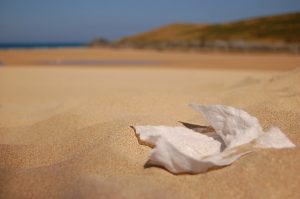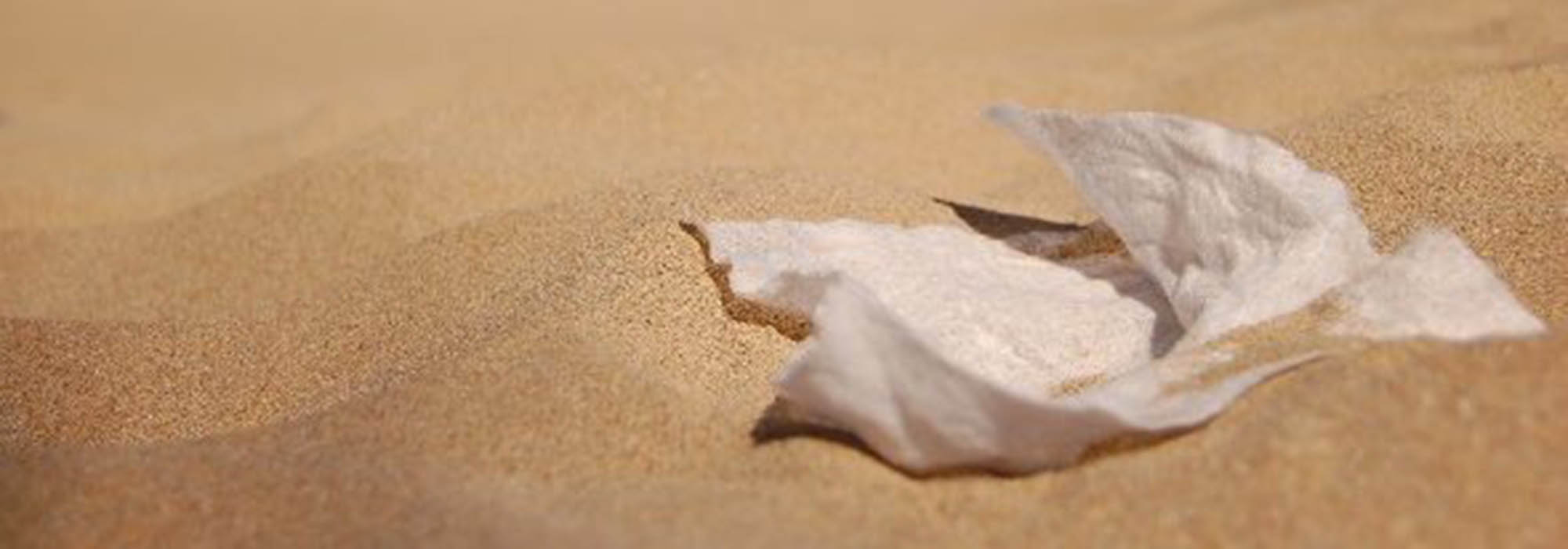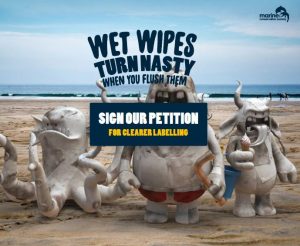Wet wipes – the ongoing plastic battle
Our Thames River Watch project has started measuring the impact of wet wipes on the Thames for the first time – and found the highest concentration of wet wipes ever recorded.
In this blog, Marine Conservation Society’s Emma Cunningham discusses the impact of wet wipes nationally, and the campaign to turn things around….

Wet wipes are causing massive problems for us, our wildlife and ending up as litter on our beaches – here at MCS we have seen a near 7-fold increase on the average litter levels of wet wipes on our beaches over the last decade.
Companies label these products as flushable and biodegradable – yet many wet wipes contain plastic and don’t breakdown. They just break up and become smaller, tinier particles – but they don’t disappear – they become part of our ever-growing microplastic problem.
What impact does microplastic have on marine life? Well, here is the proof that zooplankton mistake microplastic for food, and these little guys form the base of the food chain – they, in turn, are eaten by the fish that we eat.
Wet wipes – either whole or in pieces – end up as rubbish on our beaches, which can then be mistaken for food by all sorts of precious marine life.
MCS launched the ‘Wet Wipes Turn Nasty’ campaign in June last year to highlight this seriously gross issue. Eight water companies backed the campaign.
In just a few months, almost 8,000 people signed our petition to demand clearer wet wipe labelling. Our teams worked with UK retailers. 12 are now reviewing the flushability and labelling of their own brand wipes, and almost all have said they’ll make them plastic free. This is critical, as over 30% of people surveyed tend not to read disposal information, and 20% have flushed wet wipes, even if they weren’t labelled as flushable.
We even created an inflatable wet wipe monster, Wallace, for events, and took retailers down the sewers to get face to face with the issue.
A key purpose of the campaign was to reach people with a difficult message, and we did this. So far we have engaged over 100,000 people on social media, reached 13.9 million through the general media and have a 23% public awareness of the campaign.
But we still need more people to sign our petition for clearer labelling on wet wipe products! So please add your support and don’t forget to spread the word – only pee, poo and paper down the loo!

 Emma Cunningham is the Marine Conservation Society’s Senior Pollution Campaigns officer
Emma Cunningham is the Marine Conservation Society’s Senior Pollution Campaigns officer